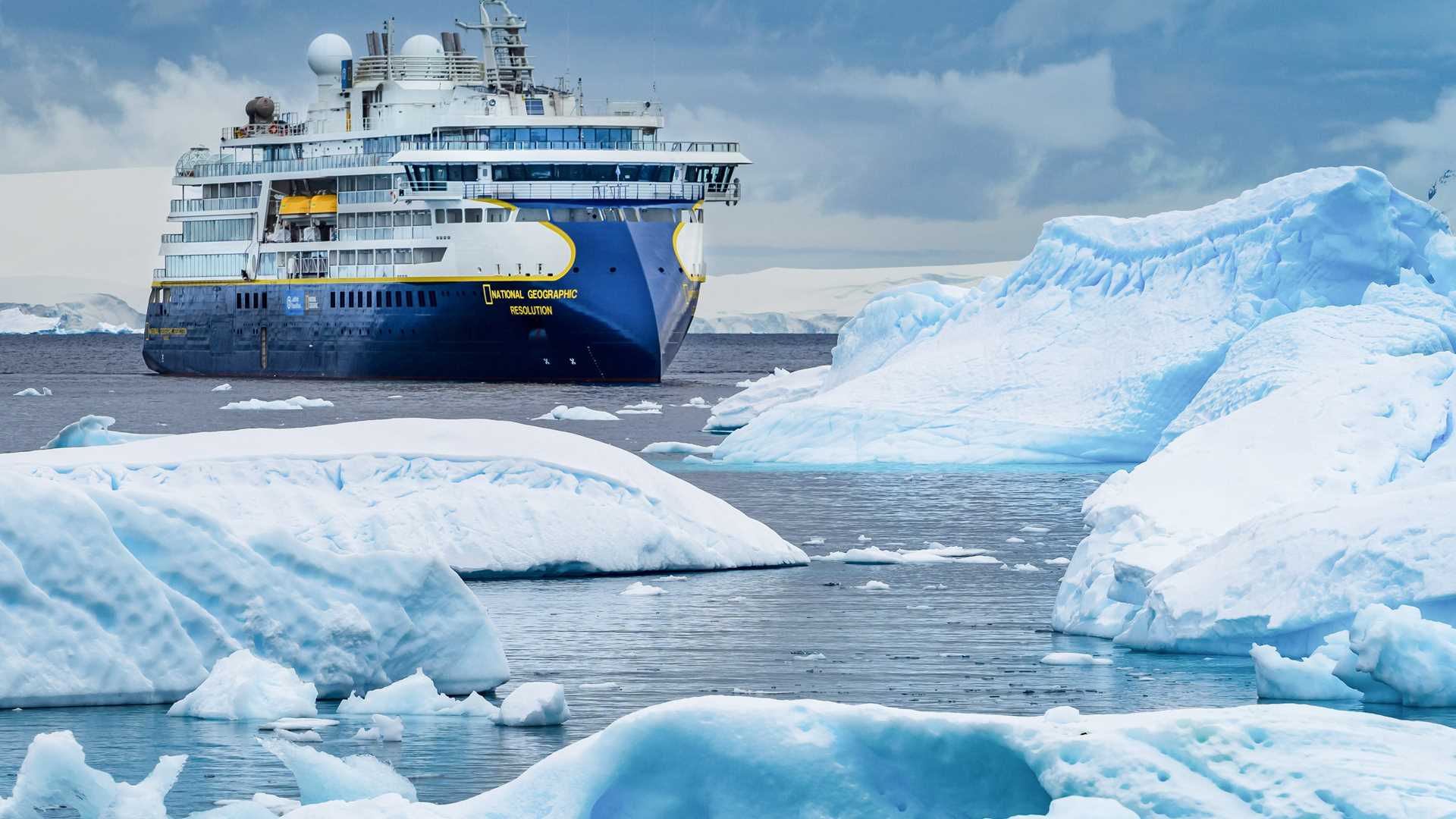Nov 2025
Watch

Author, travel writer for National Geographic and other publications, TV host and frequent Global Perspectives Guest Speaker aboard the Lindblad-National Geographic fleet, Andrew Evans is an authority on “epic.” His best-selling memoir, The Black Penguin, details his ambitious overland journey halfway across the world, crossing swamps, deserts, mountains, and jungles, slowly approaching his ultimate goal: Antarctica. And that was only the beginning of travels that have taken him, and enabled him to write about, virtually everywhere.
“I need to get away.”
How often have I said it, or simply felt it?
And where exactly is “away”? What’s the fastest way there?
I know that I won’t find it at the airport, or on a plane, or in a taxi stuck in traffic on the way to some landscaped resort. It’s not even that first or second day at sea—it’s far beyond that.
“Away” is beyond the known or expected. It’s a choice to step beyond my own predictable bucket list, to accept the dare of elsewhere, and to trust in the breathtaking surprise that can only be found in the deep unknown.
Very few travelers ever reach the real “away” and “unknown” places of the globe. Those of us who have been there—beneath an all-day sun along endless miles of Siberian shoreline, gawking at a mid-ocean meteor shower that just won’t quit, or being the first human ever to set foot on a sheet of million-year-old ice—we know where to find it.
We find it in the “in-between” places—the gap between better-known destinations, and the long blank space between calendar dates and ports of call.
“Away” is not just a place—it’s a moment in time. It’s taking the time to let the magic of discovery happen. It’s the patience of watching the horizon for spouting whales, or seeing the outline of a remote island materialize, the joy of letting the birds change your plans, and the belief that nature always delivers the best show.
For nature, silence, and solitude are the last real luxuries left in the world—and all three are becoming harder to access. This is what “epic” means—to reach beyond the man-made world, the touted destinations, and to arrive in the untouched places. To meet animals that seem surprised to see you. To take the time to separate yourself from the noise and chaos of terra cognita.
“The first great thing is to find yourself, and for that you need solitude and contemplation,” counseled the great polar explorer Fritdjof Nansen. “Deliverance will not come from rushing noisy centers of civilization. It will come from the lonely places.” He spoke from experience. He had been to those lone places in between, and he had witnessed nature at its most epic. This is the same desire that pushes us to travel further today.
This is why I like longer trips—I want to go the distance. I want to trace my finger on the globe as it turns. I want to point to a spot with no name and say, “I have been there—and it was beautiful.” I want to witness the utterly extraordinary.
I want the extra time to find the extra special. It takes me a week to let go of the routine and rhythm of home. Days on the water can pass before I notice that I am breathing slower, that I am relaxed, and that I am much more mindful of the great new world around me. The expedition becomes my purpose.
I become totally immersed in this spot. I soak it in with all my senses, knowing the purity of this place firsthand, with parrots that shock me with their colors, or a chorus line of penguins blinking back at me, a sky dark with albatross. To set foot on coasts or island shores redolent of history and impossibility. This is the “away” that I have always found on Lindblad’s longer trips, and this is the "away” I keep searching for, knowing just how epic it will be.